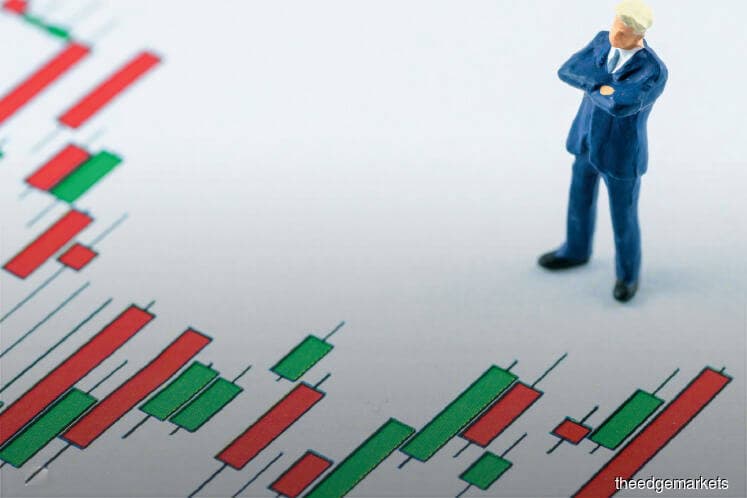
This article first appeared in The Edge Financial Daily on June 27, 2018
The market continued to decline last week and the index broke the crucial support level at 1,705 points. A weak ringgit together with falling commodities prices were primary concerns. Furthermore, Bursa Malaysia was not the only market that went south as most global markets suffered the same fate, especially China.
The FBM KLCI fell 3.8% in a week to 1,694.15 points last Friday. The index continued to fall this week and closed at 1,675.86 points, the lowest in 16 months.
Trading volume increased last week as selling pressure intensified. The average daily trading volume increased to 2.6 billion shares from 2.3 billion shares two weeks ago and the average daily trading value increased to RM3.3 billion from RM2.5 billion. This indicates more higher market capped stocks, normally traded by institutions, were being targeted.
Foreign institutions continued to sell and selling was even heavier last week. Net selling from foreign institutions was RM1,887 million, while net buying from local institutions and local retailers were RM1,479 million and RM408 million respectively.
For the FBM KLCI, only three counters closed higher last week. The three gainers were MISC Bhd (+1.5% to RM5.92), Petronas Chemicals Group Bhd (+0.7% to RM8.40) and KLCC Property Holdings (KLCC REIT) Bhd (+0.3% to RM7.55). Top decliners were Telekom Malaysia Bhd (-16.6% to RM3.21), Axiata Group Bhd (-10.7% to RM4.26) and Sime Darby Bhd (-6.9% to RM2.42).
Global markets were bearish. In Asia, the fall was led by Shanghai with its benchmark index falling to a two-year low. In Europe, Germany led the fall with a 3.3% decline. However, UK market held firm. The US market also declined but its main technology index, the Nasdaq, was held firm near historical highs.
The US dollar was firm against major currencies in the past one week. The US dollar index closed at 94.5 points last Friday compared with 94.8 points the week before. The ringgit was slightly weaker against the US dollar at RM4 per US dollar last Friday compared with RM3.99 the previous week.
In commodities, Crude oil (Brent) rebounded after two weeks of declines and increased 3.4% last week to US$75.53 (RM303.82) a barrel last Friday. The Commodity Exchange gold price fell 0.9% in a week to RM1,271.10 an ounce. In the local market, crude palm oil futures fell for the third week, declining 2.3% to RM2,282 per tonne. The price is trading near a two-year low.
The FBM KLCI broke a crucial support level at 1,705 points last week and this indicates that the bearish pressure is strong, especially from foreign institutions. The selldown is not only restricted to the local market but also global markets and hence it is a global bearish sentiment towards equities.
Technically, the trend remained bearish below both the short- and long-term 30- and 200- day moving averages and these averages are declining. The long-term 200-day moving average has declined for the first time since February 2017. Furthermore, the index is below the Ichimoku Cloud and the expanding Cloud indicates a strong bearish trend.
Momentum indicators like the Relative Strength Index, moving average convergence divergence and oscillator continued to decline and this indicates that the trend is strongly bearish. However, these indicates are at their oversold levels or relatively low prices. This may attract some buyers who are looking to bargain hunt.
The index fell below the immediate support level at 1,680.0 points this week. Although the indicator on the chart shows that the index is technically oversold, we expect the bearish momentum to continue and the index to test the next support level at 1,620 points if it fails to rebound above 1,705 points.
The above commentary is solely used for educational purposes and is the writer’s point of view using technical analysis. The commentary should not be construed as an investment advice or any form of recommendation. Should you need investment advice, please consult a licensed investment adviser.